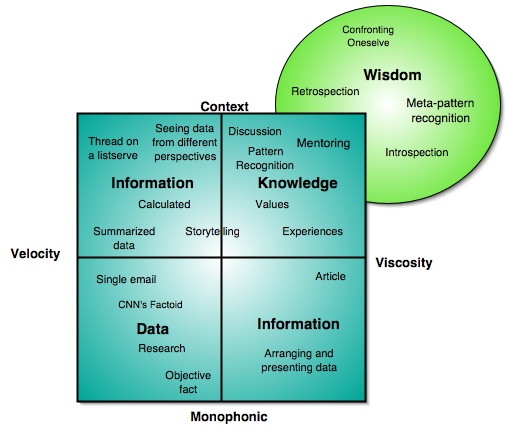Title:
Journals often (but not always) have the word "journal" somewhere in their title.
 Authorship:
Authorship:Journal articles are written by experts in the field, and indicate the authors and their affiliations. Articles are usually reviewed and critically evaluated by a board of experts in the field (refereed). On the other hand, some magazine articles are not signed and are not evaluated by experts in the field, but by editors or staff.
Length:
Journal articles are usually longer articles, providing in-depth analysis of topics. Magazine articles are shorter and provide broader overviews of topics.
Language/Audience:
Journal articles are written in the jargon of the field for scholarly readers (professors, researchers, or students). Magazine articles are usually written in non-technical language for anyone to understand.
Method:
Journal articles often attempt to prove a thesis by experimentation or documentary evidence, are usually more structured, and may include these sections: abstract, literature review, methodology, results, conclusion, bibliography.
 Sources:
Sources:Journal articles always have bibliographies and/or footnotes listing sources consulted by the author(s).
Graphics:
Journal articles often include charts or graphics, but rarely include lots of glossy photographs or advertising.
Frequency:
Journals are usually published less frequently than magazines, often quarterly or every two months.
Page Numbers:
Journal page numbers are usually sequential through all issues in a volume. Magazine pages numbers usually start over with each issue.
Source: http://www2.gcsu.edu/library/reference/m&jdiff.html
Samples of Journals:
Various international journal names can be found on the following website:
http://www.bioscience.org/atlases/jourabbr/list.htm
Samples of Magazines:
Many international magazine names can be found on the following website:
http://www.linxnet.com/mag.html
Example:
- Time Magazine
2.) DC and LC classification:
Library of Congress Classification SystemThe Library of Congress Classification System (LC System) is used to organize books in many academic and university libraries throughout the United States and world.
The interdisciplinary nature of geography requires the use of material from a variety of subject areas. This outline, which is part of the Geography site at The Mining Company should assist you to locate areas of the library to begin your research.
The LC System organizes material in libraries according to twenty-one branches of knowledge. The 21 categories (labeled A-Z except I,O,W,X and Y) are further divided by adding one or two additional letters and a set of numbers.
The system is managed with the following system:
A - General Works
B - Philosophy, Psychology, Religion
C - Auxiliary Sciences of History
D - History: General & Outside the Americas
E - History: United States
F - History: United States Local & America
G - Geography, Anthropology, Recreation
H - Social Sciences
J - Political Science
K - Law
L - Education
M - Music
N - Fine Arts
P - Language and Literature
Q - Science
R - Medicine
S - Agriculture
T - Technology
U - Military Science
V - Naval Science
Z - Library Science & Information Resources
Source: http://geography.about.com/library/congress/bllc.htm
Various international journal names can be found on the following website:
http://www.bioscience.org/atlases/jourabbr/list.htm
Samples of Magazines:
Many international magazine names can be found on the following website:
http://www.linxnet.com/mag.html
Example:
- Time Magazine
2.) DC and LC classification:
Library of Congress Classification SystemThe Library of Congress Classification System (LC System) is used to organize books in many academic and university libraries throughout the United States and world.
The interdisciplinary nature of geography requires the use of material from a variety of subject areas. This outline, which is part of the Geography site at The Mining Company should assist you to locate areas of the library to begin your research.
The LC System organizes material in libraries according to twenty-one branches of knowledge. The 21 categories (labeled A-Z except I,O,W,X and Y) are further divided by adding one or two additional letters and a set of numbers.
The system is managed with the following system:
A - General Works
B - Philosophy, Psychology, Religion
C - Auxiliary Sciences of History
D - History: General & Outside the Americas
E - History: United States
F - History: United States Local & America
G - Geography, Anthropology, Recreation
H - Social Sciences
J - Political Science
K - Law
L - Education
M - Music
N - Fine Arts
P - Language and Literature
Q - Science
R - Medicine
S - Agriculture
T - Technology
U - Military Science
V - Naval Science
Z - Library Science & Information Resources
Source: http://geography.about.com/library/congress/bllc.htm
3.) What is the "Call Number" on the SPU Library Website?
Each book in the library has a unique call number. A call number is like an address: it tells us where the book is located in the library. Example for a call number at the SPU library: SH 456 .H45M 1986.
Putting Call Numbers in Shelf Order:
To understand how call numbers are put in order in Library of Congress Classification, again look at each section of the call number.

Why is this important to know?
Because books are classified by subject, you can often find several helpful books on the same shelf, or nearby. For example, within the same call number LB2395, there are other guides for college study.

4.) What are sources of knowledge? Identify as many as you know.

The scheme above shows the factors related to turning Data into wisdom.
In regards to the sources of knowledge, there are a plenty of sources out there, which offer and provide information frequently. Examples for such sources are the following:
- Books
- Internet
- TV
- Newspapers
- Journals
- Radio
- Handouts
Source: personal definition
Furthermore we can consider the following passage when it comes to the general sources and mediums of knowledge.
1. People:
I think people are the biggest source of knowledge for anybody. Right from childhood, we have learned things by watching others. Whatever field you want to gain knowledge in, there must be many who have enough experience in that field.
So make use of this valuable source of information by learning from the experience, accomplishments, mistakes and expertise of others. Study carefully and associate with people who are experts in the field you want to gain knowledge about.
So make use of this valuable source of information by learning from the experience, accomplishments, mistakes and expertise of others. Study carefully and associate with people who are experts in the field you want to gain knowledge about.
2. Books:
The next best source of knowledge can be books. There are millions and millions of books written throughout the world in every language and on almost any topic imaginable. Whatever problem you are facing must have been faced by somebody else before, and its solution is likely to have been preserved in the form of a book. If you are serious about gaining knowledge on a topic, then read any book, magazine, article etc. you can lay your hands on related to that topic. Read as much as you can.
3. Experience:
This is another important resource for the seeker of knowledge. It is said that experience is a great teacher, so learn from your past experiences and the experience of others. Learn from your and others' past and present achievements as well as mistakes.
4. Experimentation and observation:
Experimentation is to try out new things and observation is to pay attention to small and big details.
If you want to learn something new, you may have to experiment and observe a lot. You would need to explore in deep, try out new things to see what works and what does not. Observe not just your own efforts, but also of others.
Experimenting new things and observation can help you in learning very quickly. People who do not experiment or observe much may take a long time to learn. Keep in mind though, that while experimenting, you may encounter a few failures too. Do not become discouraged as failures are a part of the learning curve, specially while attempting something new. Try to learn from failures instead of becoming disheartened.
If you want to learn something new, you may have to experiment and observe a lot. You would need to explore in deep, try out new things to see what works and what does not. Observe not just your own efforts, but also of others.
Experimenting new things and observation can help you in learning very quickly. People who do not experiment or observe much may take a long time to learn. Keep in mind though, that while experimenting, you may encounter a few failures too. Do not become discouraged as failures are a part of the learning curve, specially while attempting something new. Try to learn from failures instead of becoming disheartened.
5.Thinking and pondering:
While learning a new thing, you need to concentrate a lot. Just reading lots of books is not sufficient as you need to fully grasp what you are reading. Deep understanding about a subject is likely to come only through deep thinking and contemplation.
Source: http://ezinearticles.com/?Sources-Of-Knowledge---How-To-Gain-Knowledge-In-Any-Field&id=500120
5.) What did you read this week?
 Recently I read various source websites about King Rama IV, as for the subject Thai Studies the students are requested to issue a presentation about various Kings of Thailand, where my group has Rama IV to issue a presentation about.
Recently I read various source websites about King Rama IV, as for the subject Thai Studies the students are requested to issue a presentation about various Kings of Thailand, where my group has Rama IV to issue a presentation about.Due to this reason I read a couple of different websites containing data about King Rama IV, giving details about his biography and his reign as a King of Thailand. The information I read was turned into useful data I added to the presentation.



No comments:
Post a Comment